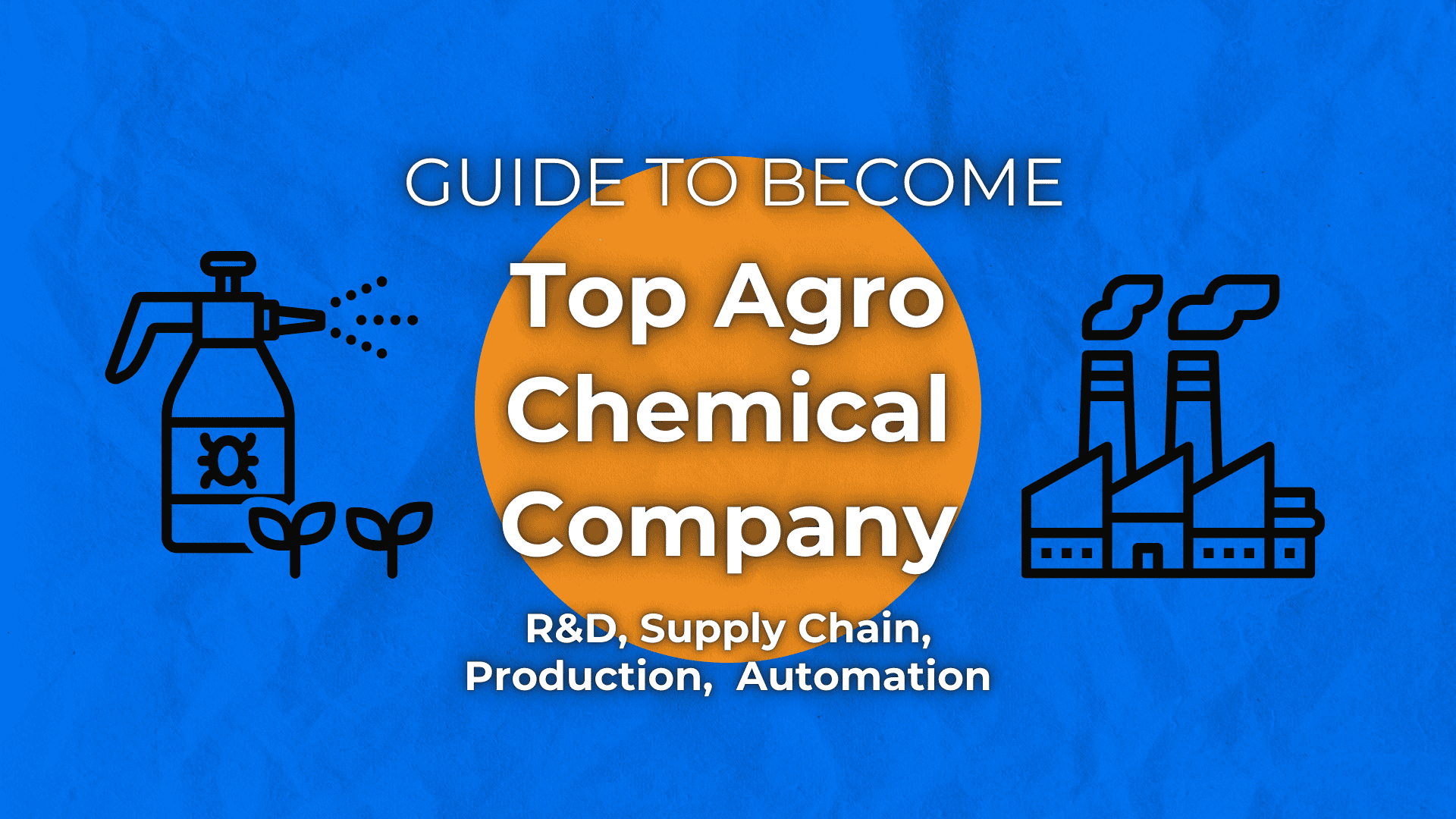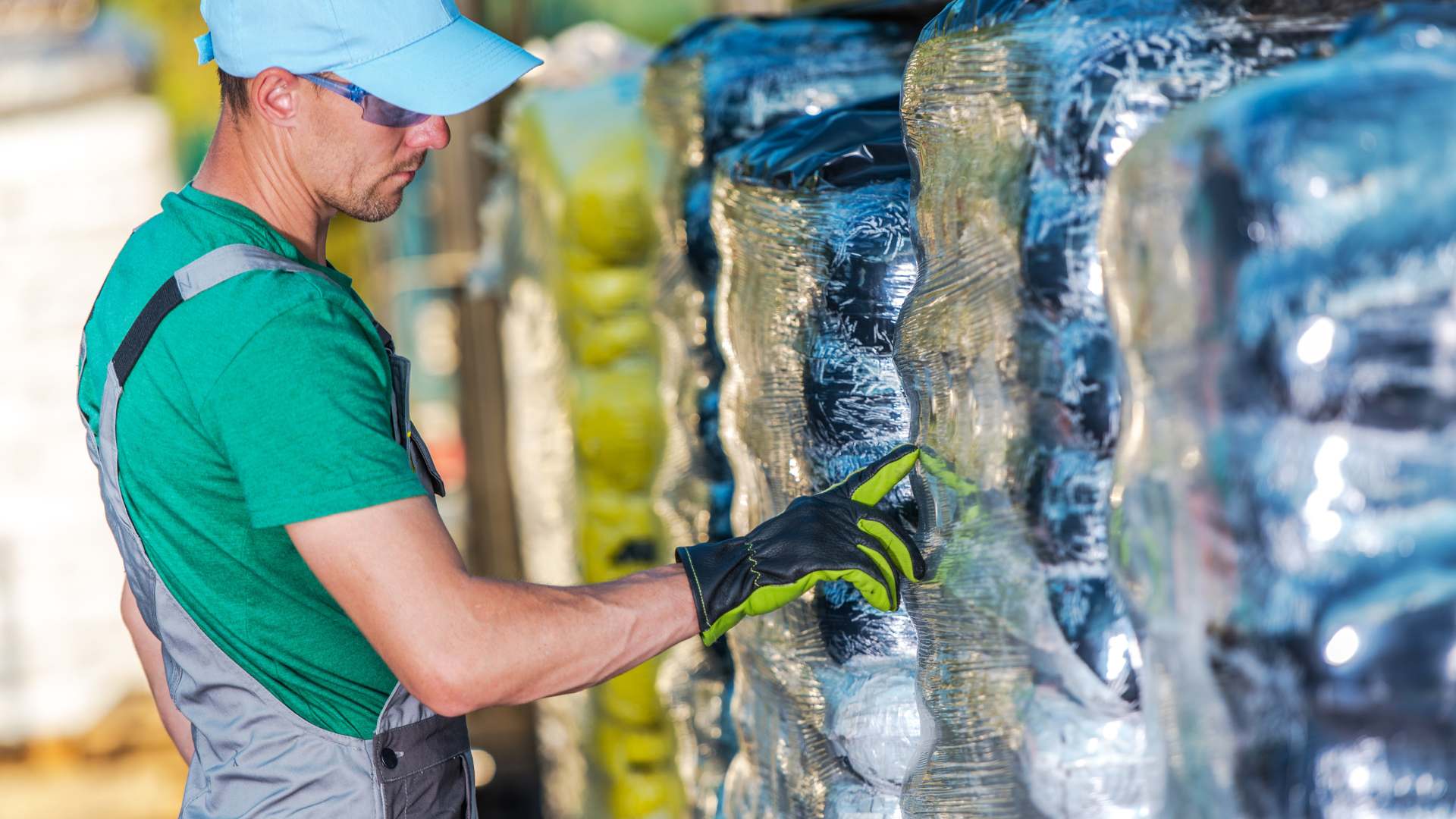How to Become a Top Agrochemical Manufacturer: A Comprehensive Guide

The agrochemical industry plays a critical role in global agriculture, ensuring high crop yields and food security. As the demand for sustainable and effective crop protection solutions increases, becoming a top agrochemical manufacturer requires innovation, regulatory compliance, and brand trust.
With competition intensifying, standing out in the market involves cutting-edge R&D, robust manufacturing processes, supply chain efficiency, and anti-counterfeiting measures. This guide outlines the essential strategies for agrochemical companies aiming to achieve market leadership and long-term success.
1. Focus on Research and Innovation
Why It Matters:
The agrochemical industry is driven by continuous innovation to develop products that are more effective, environmentally friendly, and compliant with evolving regulations.
Key Steps to Take:
✅ Invest in R&D Centres: Establish advanced research facilities to develop new formulations, bio-based agrochemicals, and next-gen pesticides.
✅ Collaborate with Universities & Institutes: Partner with agricultural research institutions to access the latest breakthroughs in crop protection.
✅ Leverage AI and Big Data: Use predictive analytics to identify emerging pests and diseases and develop targeted solutions.
✅ Develop Sustainable Alternatives: Focus on biopesticides and organic fertilizers to cater to the growing demand for eco-friendly solutions.
🔹 Case Study: Companies like Bayer and Syngenta invest billions in R&D annually, ensuring they stay ahead in product innovation and efficacy.

2. Ensure Regulatory Compliance
Why It Matters:
Governments worldwide have stringent pesticide regulations and environmental safety norms. Non-compliance can lead to heavy fines, product bans, and reputational damage.
Key Steps to Take:
✅ Understand Global Regulations: Stay updated on EPA (USA), REACH (EU), CIBRC (India), and FAO guidelines for pesticide approvals.
✅ Develop a Strong Regulatory Affairs Team: Ensure a dedicated team handles registrations, licensing, and compliance documentation.
✅ Conduct Rigorous Product Testing: Perform toxicity and environmental impact studies before launching new products.
✅ Adopt Good Manufacturing Practices (GMP): Follow ISO and WHO standards for quality and safety compliance.
🔹 Case Study: BASF ensures global compliance by adapting formulations to meet region-specific legal standards.
3. Optimise Manufacturing and Supply Chain Efficiency
Why It Matters:
An efficient manufacturing process minimises costs, improves quality, and ensures timely product delivery to farmers.
Key Steps to Take:
✅ Automate Production: Implement smart factories using IoT and AI for precision manufacturing.
✅ Strengthen Supplier Partnerships: Source high-quality raw materials to ensure consistent formulation quality.
✅ Improve Warehousing & Logistics: Optimise inventory management to reduce storage costs and prevent supply chain disruptions.
✅ Use Track & Trace Technology: Integrate blockchain-based track-and-trace systems to enhance visibility and prevent counterfeit distribution.
🔹 Case Study:UPL Limited uses AI-powered logistics to optimise agrochemical distribution across multiple countries.
4. Strengthen Brand Protection Against Counterfeits
Why It Matters:
Counterfeit agrochemicals cause crop failure, financial losses, and health risks, damaging a brand’s reputation.
Key Steps to Take:
✅ Implement Variable QR Codes & Authentication Labels: Allow farmers to verify product authenticity via smartphones.
✅ Educate Farmers & Distributors: Conduct awareness campaigns to help them differentiate genuine from fake products.
✅ Monitor Online Marketplaces: Use AI tools like Truviss to detect and eliminate counterfeit listings.
✅ Work with Government Authorities: Collaborate with customs and law enforcement to seize counterfeit shipments.
🔹 Case Study: Companies like Syngenta have successfully reduced fake agrochemical sales by introducing secure holograms and QR-based authentication.
5. Build a Strong Distribution Network
Why It Matters:
An effective distribution strategy ensures product availability in key agricultural regions.
Key Steps to Take:
✅ Expand Dealer & Retailer Network: Partner with trusted agro-dealers and cooperatives to increase market reach.
✅ Use Digital Platforms for Sales: Implement e-commerce and mobile apps to make agrochemicals accessible to farmers directly.
✅ Offer Farmer-Friendly Credit & Discounts: Introduce flexible payment options to attract small-scale farmers.
✅ Provide After-Sales Support: Offer agronomic advisory services and helplines to assist farmers with product usage.
🔹 Case Study:UPL and Corteva have strengthened rural penetration by leveraging mobile-based agrochemical sales and advisory platforms.

6. Focus on Sustainability & Environmental Responsibility
Why It Matters:
With increasing environmental concerns, top agrochemical companies must reduce their carbon footprint and develop eco-friendly solutions.
Key Steps to Take:
✅ Develop Biopesticides & Organic Fertilizers: Invest in natural and microbial-based crop protection products.
✅ Reduce Chemical Residue Impact: Use advanced formulation techniques to minimise pesticide residues in crops.
✅ Implement Zero-Waste Manufacturing: Reduce industrial waste by adopting circular economy principles.
✅ Support Regenerative Agriculture: Work with farmers to implement sustainable farming techniques.
🔹 Case Study: Companies like Bayer and Sumitomo have launched low-impact, biodegradable pesticide formulations.
7. Leverage Digital Marketing & Farmer Engagement
Why It Matters:
Farmers are increasingly using digital platforms for product research and purchasing decisions.
Key Steps to Take:
✅ Develop Educational Content: Publish blogs, videos, and case studies on best farming practices and agrochemical usage.
✅ Host Webinars & Training Programs: Provide online training on pest management and soil health.
✅ Use WhatsApp & Mobile Apps for Support: Offer instant product information and real-time agronomic assistance.
✅ Build a Farmer Loyalty Program: Reward repeat buyers with discounts, free samples, and exclusive training sessions.
🔹 Case Study: Corteva’s mobile advisory app provides real-time pest alerts and customised fertilizer recommendations.
Conclusion
Becoming a top agrochemical manufacturer requires innovation, compliance, supply chain excellence, and brand trust. By integrating cutting-edge R&D, sustainability initiatives, digital marketing, and anti-counterfeiting strategies, businesses can establish themselves as market leaders.
At Acviss, we provide state-of-the-art anti-counterfeiting and traceability solutions tailored to the agrochemical industry. Protect your brand, build customer trust, and ensure product integrity with our advanced QR code authentication and digital tracking technologies.
🔹 Ready to take your agrochemical business to the next level?
Contact Acviss today to explore our industry-leading brand protection solutions!
